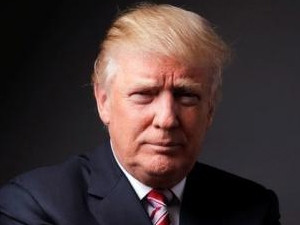
The majority of "technology elites" in the US believe the country's tech industry's best days are still to come, and the incoming Trump administration will be favourable to the technology industry.
This is according to the recent "Age of Trump Technology Policy Survey", developed by public relations firm Burson-Marsteller to explore attitudes and perceptions about the future of the technology industry.
Participants in the survey included 1 000 members of the US general public, as well as a separate sample of 500 technology elites - individuals who either work in technology or invest in the technology sector.
US president-elect Donald Trump is set to take office on 20 January this year. Following his election last year, Trump and some of Silicon Valley's most powerful executives met at his Manhattan tower in December, in a summit convened to smooth over frictions after both sides made no secret of their disdain for each other during the election campaign.
The meeting between tech luminaries, including Apple's Tim Cook, Facebook's Sheryl Sandberg and Tesla Motors' Elon Musk, took place as Trump has alarmed some US corporations with his rhetoric challenging long-established policy towards China, a main market for Silicon Valley.
In the Burson-Marsteller study, 76% of technology elites said the US technology industry's best days are still to come, compared to 59% of the general public; and 59% believe the incoming Trump administration will be favourable to the technology industry, compared to 50% of the general public.
Continuing in this optimistic vein, 73% of technology elites believe the technology industry will contribute to job creation, compared to 63% of the general public; and 73% of technology elites say innovation is critical to the US's position in the global economy and the technology industry is going in the right direction to maintain that, compared to 59% of the general public.
Overall, 52% of technology elites believe the country is going in the right direction, compared to 27% of the general public; and 59% say the economy will improve under Trump, compared to 46% of the general public. In addition, 88% of technology elites and 76% of the general public trust the technology industry to behave responsibly and in the best interests of the American public.
In contrast to the optimism among technology elites about the current and future state of the economy, the general public expressed some concerns, with 59% believing the country is on the wrong track. Furthermore, less than half of the general public (43%) believe the economy is better off than it was four years ago, with only one in five indicating it will be significantly better five years from now.
While both technology elites and the general public believe the technology industry will do better in the next four years (56% and 66%, respectively), they are less sure about Trump's role in that success. Only 50% of the general public say "yes" when asked if Trump is a technology industry supporter, and this is only slightly higher among technology elites, at 59%.
Technology elites are evenly split on whether the Trump or Obama administrations better understand the needs of companies in the industry, although the general public is slightly more likely to favour the Trump administration, at 58%.
When asked to choose the word that best describes how they feel about the future of the industry under the Trump administration, 37% of technology elites chose positive words (optimistic, energised, supported, eager); 34% chose negative words (concerned, anxious, attacked, angry); and 27% chose neutral words (wait and see, neutral, so-so/mixed feelings).
The general public was even more ambivalent about Trump's impact on the future of the technology industry, with 39% choosing neutral words; 33% choosing positive words; and 27% choosing negative words.
Share